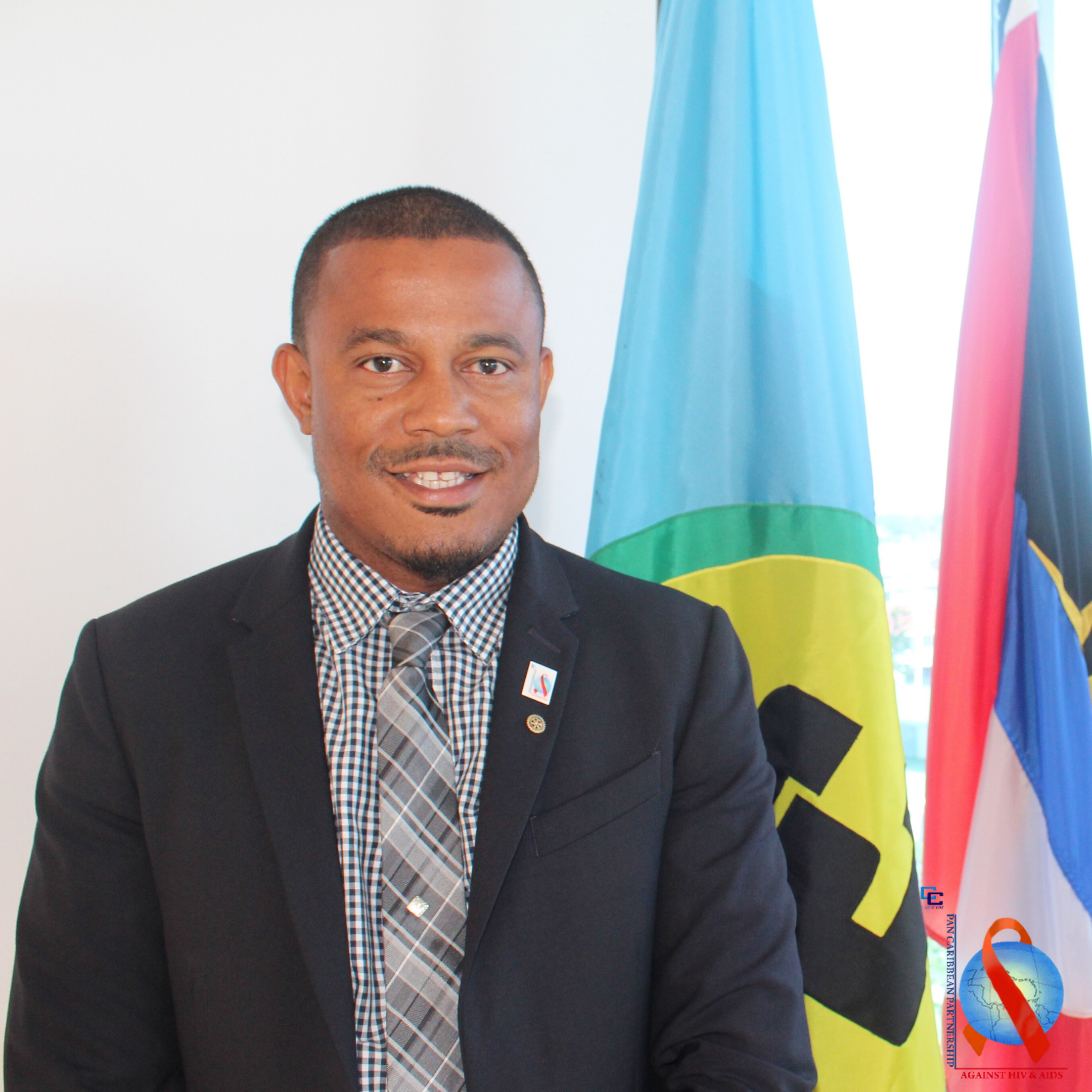
Director’s message – May 2020HIV in the Caribbean Regional Health Security Agenda
HIV in the Caribbean Regional Health Security Agenda
The COVID-19 pandemic has underscored the importance for the region to focus on and to strengthen Regional Health Security. Health security is not a new topic but has recently taken on a new urgency for policymakers and public health specialists.
The emergence of communicable diseases in the region such as Zika, Chikungunya and now COVID-19, along with natural disasters especially hurricanes and the potential future challenges from Climate Change are all examples of why a Regional Health Security framework is needed to ensure that the region can prepare and mitigate against the impact of these threats.
Regional Health Security consists of the activities required, both proactive and reactive, to minimise the danger and impact of acute public health events that endanger people’s health across the region and international boundaries. It must be noted that Regional Health Security is not only a public health issue but requires multisectoral support, collaboration and action.
HIV continues to be a global public health threat
As the region’s focus is turned towards containing COVID-19, let us remember that HIV continues to be a major global public health issue, having claimed more than 32 million lives so far. The Caribbean has the highest incidence rate of reported AIDS cases in the Americas. The Caribbean is the second most-affected region in the world after Africa, with an HIV prevalence of 1.6%.
Many challenges continue to complicate HIV control efforts in the Caribbean. Many People Living with HIV or at risk for HIV infection do not have access to prevention, treatment, and care, and there is still no cure. HIV primarily affects those in their most productive years, and it not only affects the health of individuals, but also impacts households, communities, and the development and economic growth of nations.
“We must not lose the gains made in the HIV response”
The region is already faced with severe challenges due to other infectious diseases, natural disasters, and additional global health and development problems. However, if we are to ensure that the region is safe and secure, HIV must be part of the health security agenda. The regional HIV response must be scaled up. It must provide the highest level of commitment to ensure that costed, inclusive, sustainable, credible and evidence-based national HIV and AIDS plans are funded and implemented with transparency, accountability and effectiveness to safeguard the sustainability of the national response.
The HIV epidemic in the region is far from over. We cannot ignore HIV or otherwise, we can regress and lose control of the epidemic and the gains made over the years.
WHAT IS PANCAP?
PANCAP is a Caribbean regional partnership of governments, regional civil society organisations, regional institutions and organisations, bilateral and multilateral agencies and contributing donor partners established on 14 February 2001. PANCAP provides a structured and unified approach to the Caribbean’s response to the HIV epidemic, and coordinates the response through the Caribbean Regional Strategic Framework on HIV and AIDS to maximise efficient use of resources and increase impact, mobilise resources and build the capacity of partners.
What are the Global AIDS Strategy 2021–2026 targets and commitments?
If targets and commitments in the strategy are achieved:
- The number of people who newly acquire HIV will decrease from 1.7 million in 2019 to less than 370 000 by 2025
- The number of people dying from AIDS-related illnesses will decrease from 690 000 in 2019 to less than 250 000 in 2025.
- The goal of eliminating new HIV infections among children will see the number of new HIV infections drop from 150,000 in 2019 to less than 22,000 in 2025.
What are the 95-95-95 Targets for ending AIDS?
- 95% of People Living with HIV know their HIV status;
- 95% of people who know their status on treatment; and
- 95% of people on treatment with suppressed viral loads.
HELPFUL LINKS:
Global AIDS Strategy 2021–2026, End Inequalities, End AIDS
https://pancap.org/pancap-documents/global-aids-strategy-2021-2026-end-inequalities-end-aids/
Caribbean Regional Strategic Framework on HIV and AIDS (CRSF) 2019-2025
https://pancap.org/pancap-documents/caribbean-regional-strategic-framework-2019-2025/
